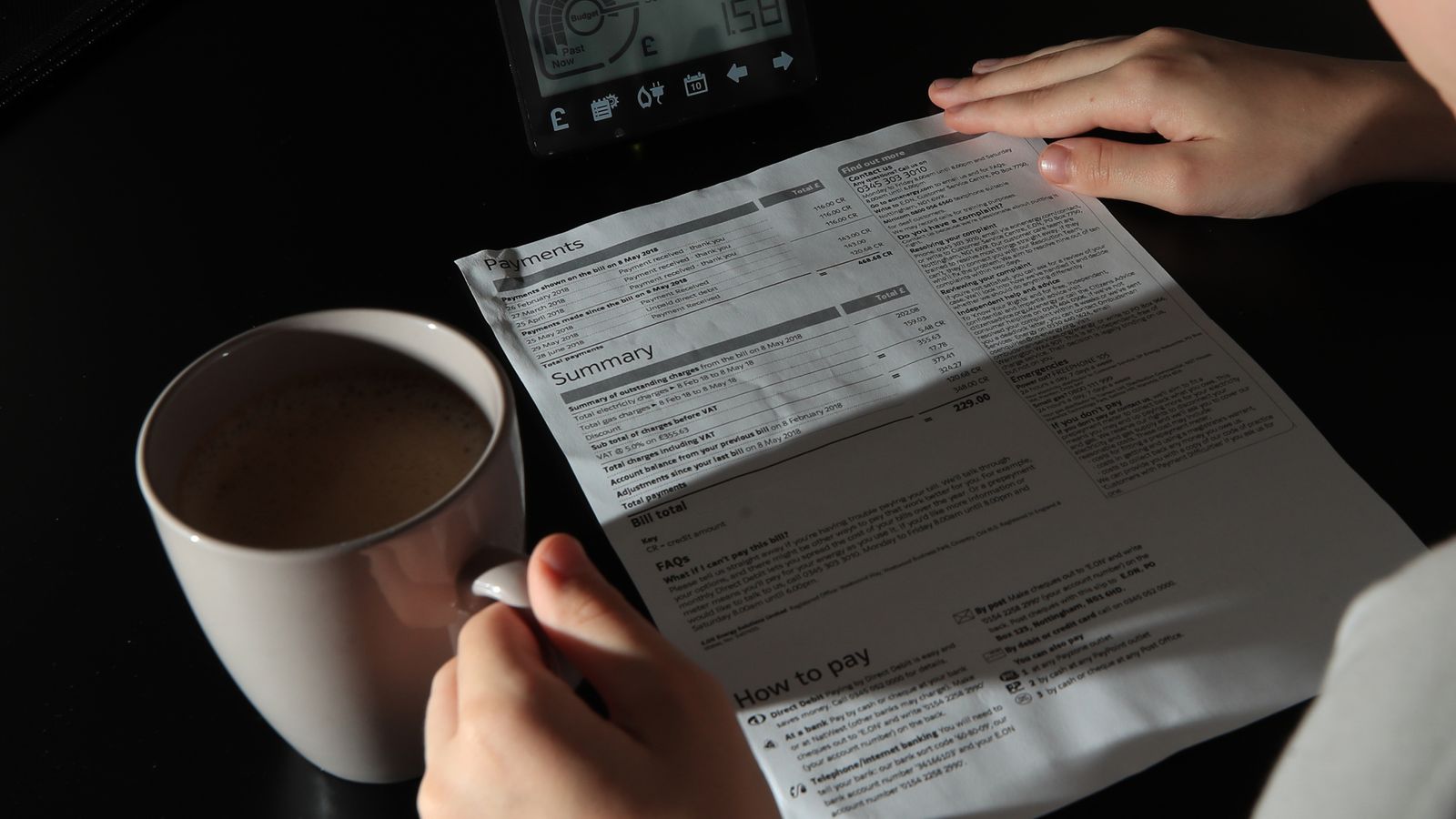The energy regulator has told MPs that it estimated around £200m in household credit balances was lost through the failures of energy companies over the past year – with up to £10 set to be added to rocketing bills as a result.
Ofgem chief executive Jonathan Brearley made his remarks as the business, energy and industrial strategy (BEIS) committee seeks lessons in the wake of the energy price-driven spike in inflation that is set to pile misery on consumers.
The watchdog’s stewardship of the energy market has been called into question after surging wholesale costs forced almost 30 firms out of business since last summer.
Please use Chrome browser for a more accessible video player
The millions of customers affected were appointed a new supplier by Ofgem but it emerged that household credit balances did not transfer with them as the cash – a consequence of a direct debit level versus energy use imbalance – had often already been accounted for by the companies that went bust.
It was confirmed last week that the energy price cap – which Ofgem said had protected 22 million households from the worst over the winter – is set to rise in April by an average £693 per year per household.
Of that sum, £2.45 accounts for £54m in lost consumer credit balances to date, covering about a quarter of the overall estimated loss.
Mr Brearley said: “Those figures aren’t figures that we’re finished with but are roughly in that order of magnitude.”
Peloton cuts 2,800 jobs with even the boss told to get on his bike as sales crash
BP to ‘accelerate greening’ as surging energy prices push profits to $12.8bn
Arm’s $40bn sale to Nvidia is called off after US-UK regulatory pressure
He explained Ofgem was in the process of implementing a demand that suppliers return credit balances to customers on an annual basis but the measure was not finalised ahead of the price crisis.
He added: “The argument at the time was that this would make it very hard for small suppliers to operate.”
Mr Brearley told the MPs that boosting competition in energy provision had been the “number one priority” for regulators, not just Ofgem, over the past decade.
Read more on the energy crisis:
Is net zero and environmental policy responsible for rising energy bills?
Energy bills could see further increase in autumn, British Gas boss warns
A third of people blame ‘profiteering’ by energy companies for gas price rises
Please use Chrome browser for a more accessible video player
But he admitted it had come at the expense of tougher financial controls on smaller operators – and it was an issue the regulator was working to address in its proposed market reforms.
Ofgem also announced last week that in addition to the cap reflecting the higher energy costs, there will be a £68 charge to cover the cost of protecting the customers whose energy suppliers had failed because their new suppliers had needed to buy energy at the top of the market to meet their needs.
Mr Brearley sounded a note of caution on the path for energy prices ahead, given the effects already being seen in the market because of the Russia-Ukraine crisis.
Please use Chrome browser for a more accessible video player
“If Russia invades Ukraine that would drive high gas prices and ultimately feed through to customers,” he warned.
He explained that while Britain only receives around 5% of its gas supply from Russia, lower overall Russian supply to Europe would mean less supply becoming available from other sources and potentially higher prices as a result.






















